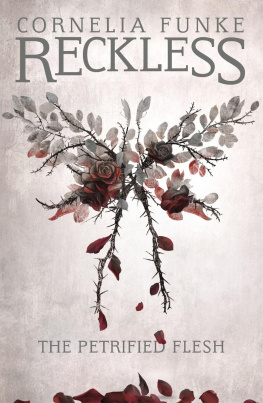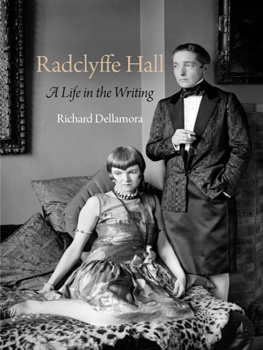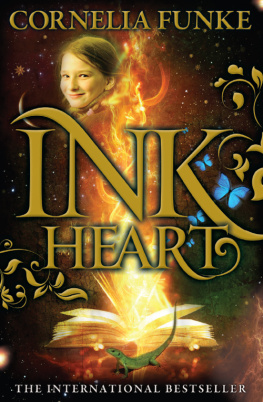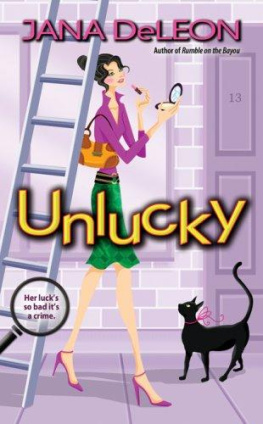The World and other unpublished works
of Radclyffe Hall
The World
and other unpublished works
of Radclyffe Hall
edited with an introduction by
JANA FUNKE
Manchester University Press
Introduction, critical apparatus, etc. Jana Funke 2016
The right of Jana Funke to be identified as the editor of this work has been asserted by her in accordance with the Copyright, Designs and Patents Act 1988.
Published by Manchester University Press
Altrincham Street, Manchester M1 7JA, UK
www.manchesteruniversitypress.co.uk
British Library Cataloguing-in-Publication Data
A catalogue record for this book is available from the British Library
Library of Congress Cataloging-in-Publication Data applied for
ISBN 978 0 7190 8828 5
First published 2016
The publisher has no responsibility for the persistence or accuracy of URLs for external or any third-party internet websites referred to in this book, and does not guarantee that any content on such websites is, or will remain, accurate or appropriate.
Typeset in Arno by
Koinonia, Manchester
Contents
Acknowledgements
I am very grateful to the Hobby Family Foundation for funding my Fellowship at the Harry Ransom Center in Austin, Texas, which allowed me to transcribe and begin to prepare for publication the materials included in this volume. Patrice S. Fox, Molly Schwartzburg and Richard Workman offered knowledgeable advice during my stay in Austin. For permission to publish the works included in this volume, I thank the Harry Ransom Center and Jonathan Lovat Dickson, executor of the literary estate of Radclyffe Hall. Many thanks are also due to Jennifer Custer at A.M. Heath & Company and Matthew Frost at Manchester University Press, who supported the project from the start and patiently saw it through to completion.
I also wish to thank Laura Marcus, who encouraged me to conduct this research at an early stage, and Jay Prosser, who provided a reference to support my Fellowship application. I had the good fortune of being able to discuss my ideas for the Introduction with intellectually generous scholars such as Sally Cline, Laura Doan and Diana Wallace. My colleagues and friends in the Department of English and the Centre for Medical History at the University of Exeter have been a tremendous source of support and knowledge throughout. Cara Lancaster kindly allowed me to read the Mabel Batten diaries and Jane Victoria Mackelworth generously shared copies of the Una Troubridge diaries with me. I am very grateful to both. I would also like to thank the Romney Abbish parish for providing information on Saint Ethelflaeda. I am particularly grateful to the anonymous readers for Manchester University Press, whose positive feedback and helpful suggestions concerning the Introduction and structure of the volume have been invaluable.
Finally, I am deeply indebted to Sherri Lynn Foster and to my family, Annegret, Werner and Nikolas Funke, for their love, encouragement and support.
Jana Funke,
Exeter, February 2015
A note on the texts
In keeping with Radclyffe Halls wishes, Una Troubridge destroyed most, but not all, of her partners papers after her death in 1943. When Troubridge herself died in Rome in 1963, some of these remaining materials were bequeathed to her friend, the opera singer Nicola Rossi-Lemeni, who passed them on to her son, Alessandro Rossi-Lemeni. These manuscripts were kept in two trunks in a basement in Rome before they were acquired and catalogued by the Harry Ransom Center in Austin, Texas, in 1997. The archive comprises a diverse range of materials, including early drafts of published novels and short stories; unpublished novels and short fiction; notes and sketches; letters and publicity materials; and some of Troubridges diaries.
This volume presents a selection of these manuscripts. It includes ten previously unpublished short stories and Halls unfinished novel The World. It also contains early drafts of Halls short story Miss Ogilvy Finds Herself (1934) and of the war section in The Well of Loneliness (1928). Choosing archival materials for publication is inevitably a subjective process that warrants explanation. The state of some surviving manuscripts made it impossible to transcribe them for publication. For example, the Harry Ransom Center holds a handwritten draft of Halls only known play, which is so heavily damaged by water and mould that it is illegible in large parts. Halls idiosyncratic writing and spelling also made some of the existing manuscripts difficult and, at times, impossible to read and transcribe. I have mentioned some of the manuscripts that could not be published in the present volume in my Introduction; other materials that are held at the Harry Ransom Center and the Lovat Dickson Archive at the National Archives of Canada in Ottawa and that remain unpublished are discussed in the most recent biographies of Hall by Sally Cline and Diana Souhami and in Richard Dellamoras Radclyffe Hall: A Life in the Writing (2011). My editorial decisions were also guided by Hall herself: she hoped to publish most of the short fiction included in the present volume and prepared polished drafts that are suitable for publication. Exceptions such as The Modern Miss Thompson or The World, which were not revised for publication, are included, because they offer new insights into Halls engagement with themes and topics that are of scholarly interest. Similarly, the early drafts of published texts like Miss Ogilvy Finds Herself and The Well of Loneliness are selected due to their relevance to scholarship.
Dating Halls manuscripts poses serious challenges to the editor, as the materials I consulted arrived at the Harry Ransom Center in no particular order. I have included all available information in the Introduction or in the Editorial notes at the end of the volume. These notes also detail how many drafts of each text survive and in what form. In cases where multiple versions exist, I have drawn on internal or external evidence to select the final surviving typescript. With regard to The World, I have selected the longest existing draft. The more complicated evolution of the unpublished draft of Miss Ogilvy Finds Herself is detailed in the Introduction.
In preparing these texts for publication, my aim was to present a readable text. Most of the typescripts contain only minor revisions and corrections, which have been incorporated silently in the transcripts published here. Exceptions are mentioned in the Introduction or Notes. Hall struggled very seriously with orthography, and I have silently corrected most misspellings and standardised variant spellings. I have also, for the most part, corrected and standardised without comment capitalisation, hyphenation and punctuation (e.g. Thomas Cooks for Thomas Cooks). Commonly used abbreviations and contractions have been spelt out (e.g. and for &). Square brackets are reserved for editorial use and indicate gaps, doubtful readings of illegible text and wording supplied by editorial conjecture. [?] stands for an illegible word. A word in square brackets followed by a question mark indicates a word supplied by editorial conjecture. Finally, a bracketed word without a question mark represents an editorial addition.
Introduction







